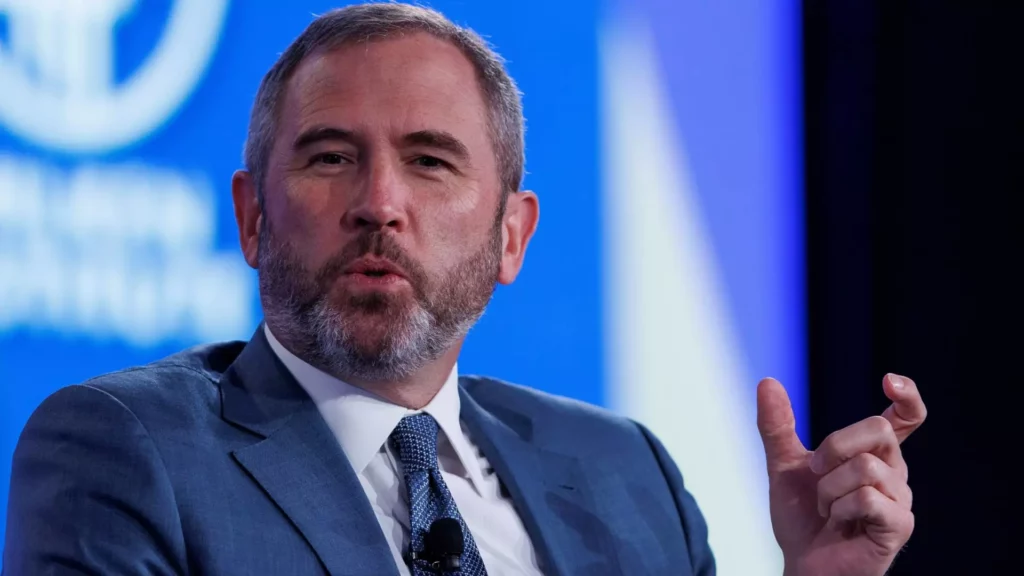In a dramatic upheaval within the cryptocurrency realm, Ripple Labs has emerged victorious in its battle against the U.S. Securities and Exchange Commission (SEC). This landmark ruling, concluding a nearly four-year legal fight, marks a decisive moment not only for Ripple but for the entire crypto landscape in America. The SEC’s decision to drop its lawsuit against Ripple in 2023 has sent ripples—pun intended—through the cryptocurrency community, igniting fervent discussions about the future of digital asset regulation. This occasion serves as a clarion call, signaling the potential for a recalibration of the regulatory environment that has thus far been tumultuous and confusing for many players in the market.
Stuart Alderoty, Ripple’s Chief Legal Officer, articulated the profound implications of this win, underscoring that it serves as a stark rebuke to the SEC’s previously hyper-aggressive stance toward cryptocurrency oversight. By effectively rebutting the agency’s claims that XRP, Ripple’s native cryptocurrency, qualifies as a security, Ripple has unlocked a wealth of opportunities for constructive dialogue surrounding the establishment of a functional legal framework governing digital currencies.
The Ripple Effect on Regulatory Landscape
The repercussions of this ruling extend far beyond Ripple itself. The case has polarized financial and legal communities, triggering debates that are becoming increasingly urgent in a world where digital currencies are no longer niche but vital components of the financial system. With a federal judge ruling that XRP is “not necessarily a security,” this decision underscores a broader truth: Many cryptocurrencies may defy categorization under existing regulatory standards.
This newfound liberating narrative does not just free Ripple; it casts a long shadow on the SEC’s sweeping enforcement tactics, which in the past have stifled innovation and growth within the industry. Ripple’s perseverance, backed by an estimated expenditure of over $150 million in legal fees, reflects an entire sector’s aspiration to thrive despite overzealous regulatory hurdles. Former SEC Chair Gary Gensler’s combative approach towards crypto entities stands in stark contrast to the environment that could follow Ripple’s victory.
An Evolving Regulatory Environment
The recent trends following Ripple’s success suggest a significant shift within regulatory paradigms. The SEC appears to be recalibrating, as evidenced by the gradual dismissal of other lawsuits targeting major crypto exchanges like Coinbase and Kraken. Alderoty aptly describes this transition away from enforcement-driven tactics towards engagement, indicating that regulatory bodies are adopting a more collaborative approach that could foster innovation rather than hinder it.
This is further illustrated by the SEC’s decision to establish a dedicated Crypto Task Force under the stewardship of Hester Peirce. Her leadership signals a pivotal shift: while regulations are not going away, the historically adversarial relationship between regulators and the crypto sector may finally be yielding to a more cooperative framework. The possibility of working hand-in-glove with regulators is refreshing and offers a vision for greater integration of cryptocurrencies into mainstream financial operations.
Political Winds Shift Favorably
Perhaps most intriguingly, the political atmosphere surrounding cryptocurrencies is undergoing a metamorphosis, particularly with Donald Trump’s re-emergence as a prominent figure within Republican circles. Once a critic of Bitcoin, Trump is now vocal in his support for cryptocurrencies and has made clear his ambition to establish the U.S. as the “crypto capital” of the world. This willingness to embrace what was once derided demonstrates a profound shift in perspective, recognizing the potential of digital assets as integral players in the future financial ecosystem.
Trump’s position resonates strongly with his base and crypto investors alike, creating an environment where geopolitics and economic innovation could intertwine more closely than ever before. The political backdrop that supports cryptocurrencies carries the potential to create a climate conducive to legislative reforms that prioritize clarity and growth over caution and constraint.
The Future of Cryptocurrency Regulation
While Ripple’s legal victory undeniably raises significant questions about the SEC’s authority in regulating digital assets, it also shines a light on the critical need for structured guidelines. The retroactive retraction of Staff Accounting Bulletin 121—an agency rule perceived as an impediment to institutional investment—suggests that the SEC is not merely retreating but is actively reassessing how it approaches the ever-evolving digital economy. This recalibration could lay the groundwork for institutional giants like Goldman Sachs and Morgan Stanley to engage with cryptocurrencies on more favorable terms.
However, the road ahead remains fraught with uncertainty. As Ripple’s success injects optimism into the cryptocurrency community, the ongoing demand for articulate and coherent regulatory frameworks persists. The ultimate challenge lies in nurturing a culture of responsible innovation while ensuring that regulation keeps pace with the rapid advancements in technology.
The legal battles may have concluded for Ripple, but the broader quest for clarity in governance over digital assets is only just beginning. The cryptocurrency community remains vigilant, hoping that this pivotal moment signals a renaissance in how the United States approaches crypto regulation—one that prioritizes growth, innovation, and collaboration over obstruction and hostility.









Leave a Reply